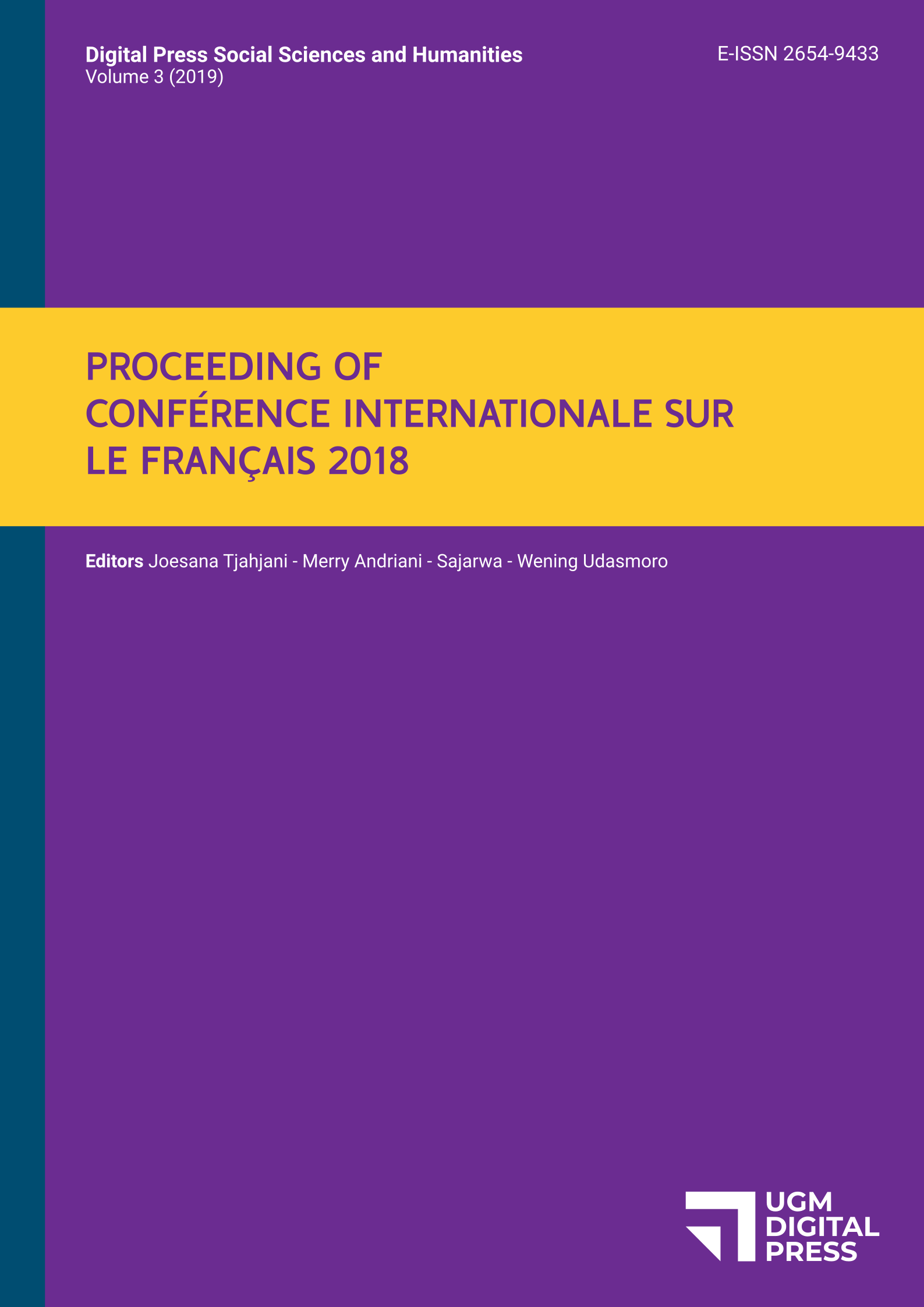L’influence du genre à la transmission de la mémoire : Cas de Dora Bruder de Patrick Modiano
Fauzan Hanif
Universitas Gadjah Mada, Yogyakarta, Indonesia
fauzan.hanif@mail.ugm.ac.id
Abstract
Such cultural experiences have a possibility to be embedded
in a memory of one generation. But there are mostly in form of traumatic
experiences. And then, we learn that these memories could be transferred onto
their children, or we could say it as “post generation”. In the novel Dora Bruder, such things happen when the
author, Patrick Modiano, plays his attribute in composing genres to arrange and
transfer his message. The story mainly concerns as the narrator try to find a
missing girl named Dora Bruder. She was gone in 1941, or in the moment when
Nazi was occupying France. This research aims to discover the relationship
between the role of genre on emerging the message, particularly the traumatic
ones by using the concept of genre and postmemory. From the analysis we
conclude that Modiano use genres to transfer his message traumatic. It exists
in form of the impression of absence. From the sensation of absence, he
continues to transmit consecutively another impression of hollow, doubt, and
also hope. For transferring his message and memory, Modiano mixes real
documents and his fiction. He manifest them by constructing a story of another
person and narrating it from the first-person point of view. He uses this
technique to identify himself, because the “shared idea” of one’s could be
related with another’s.
Keywords
Dora Bruder, post memory, memory transmission, genre, traumatic experience
References
fauzan.hanif@mail.ugm.ac.id
Abstract
Such cultural experiences have a possibility to be embedded in a memory of one generation. But there are mostly in form of traumatic experiences. And then, we learn that these memories could be transferred onto their children, or we could say it as “post generation”. In the novel Dora Bruder, such things happen when the author, Patrick Modiano, plays his attribute in composing genres to arrange and transfer his message. The story mainly concerns as the narrator try to find a missing girl named Dora Bruder. She was gone in 1941, or in the moment when Nazi was occupying France. This research aims to discover the relationship between the role of genre on emerging the message, particularly the traumatic ones by using the concept of genre and postmemory. From the analysis we conclude that Modiano use genres to transfer his message traumatic. It exists in form of the impression of absence. From the sensation of absence, he continues to transmit consecutively another impression of hollow, doubt, and also hope. For transferring his message and memory, Modiano mixes real documents and his fiction. He manifest them by constructing a story of another person and narrating it from the first-person point of view. He uses this technique to identify himself, because the “shared idea” of one’s could be related with another’s.

